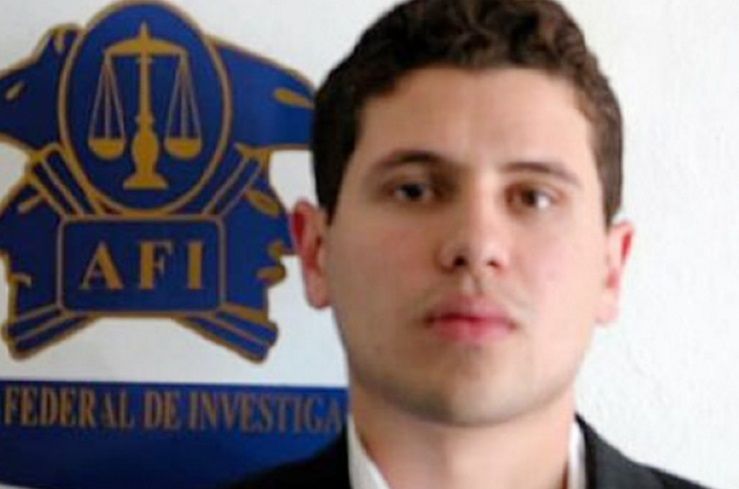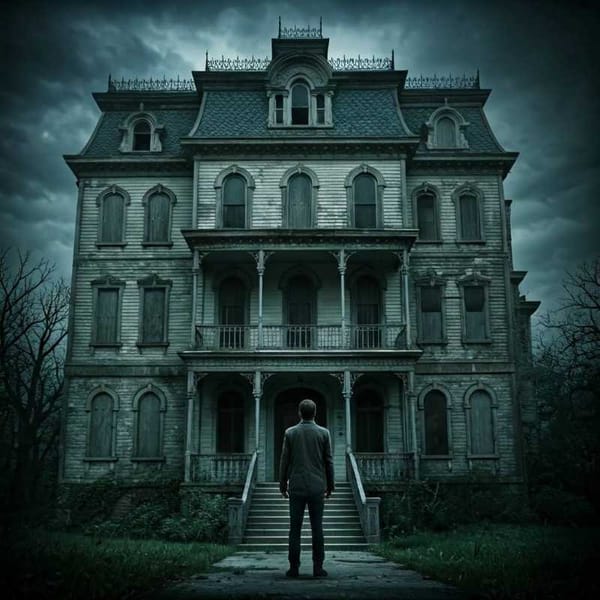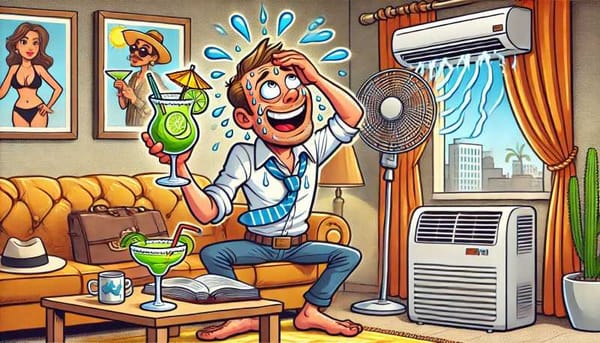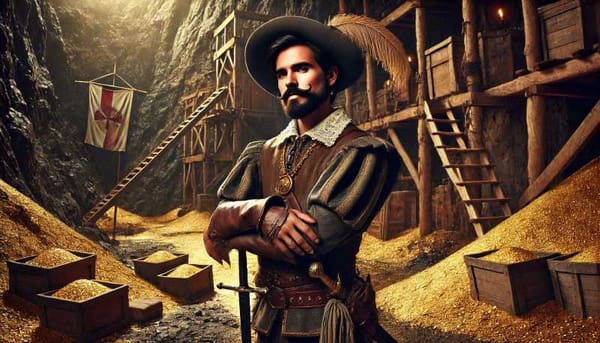The sons of "El Chapo" Guzmán equip Sinaloa's school with screens, uniforms
The sons of Mexican drug trafficker Joaquin "El Chapo" Guzman equipped a supposed school with screens, benches, chairs, uniforms, computer equipment and internet.

The sons of Mexican drug trafficker Joaquin "El Chapo" Guzman equipped a supposed school with screens, benches, chairs, uniforms, computer equipment, and internet so that 90 elementary students from the capital of Sinaloa, a northwestern state, could continue their studies in the pandemic.
Esmeralda, a volunteer at the alleged school sponsored by Guzmán Loera's family resources, assured Efe that in addition to bringing school furniture and uniforms, they had the bathroom equipped with materials, fenced and roofed the school. The drug trafficker's children, he said, have also brought pantries and school supplies.
"We had been asking for help for the school for a while and they saw the note and we never imagined that we would receive the help of that magnitude," she said, but the Ministry of Public Education and Culture of Sinaloa has no knowledge about the alleged educational space.
Esmeralda, one of the volunteer instructors of the new school in the Colonia Ampliacion Bicentenario, one of the poorest neighborhoods in Culiacan, assured Efe that there was no conditioning of the so-called Chapitos towards the community.
"We received the help from the sons of Joaquín Guzmán Loera, from the sons of Chapo Guzmán, through other people. They didn't come in person, but they sent other people, but the help was from them," she said in an interview.
Community roots
Despite serving a life sentence for a year in the United States, the former leader of the Sinaloa Cartel and his family still have support in their community. The support of some Sinaloans also occurs despite the latent fear that continues a year after the "Culiacanazo", a failed operation to capture Ovidio Guzmán, son of the Chapo, who detonated violence in the city with at least eight deaths.
Esmeralda affirmed that Chapo's sons have donated four screens, computers, printers, tables, banks, and internet access. The woman also mentioned that they equipped the bathroom with materials, fenced and roofed the school, and donated uniforms for all the students, including shoes. The drug trafficker's children, she said, have also brought pantries and school supplies.
The sons of El Chapo learned by some means about the needs of the colony, where low-income people live, most of whom work as scavengers at the municipal dump. "We had been asking for help for the school for a while and they saw the note and we never imagined that we would receive the help of that magnitude," she said.
About the accusations of drug trafficking that weigh on Chapo's sons, Esmeralda argued that "it's their business," that the neighbors are only grateful for the help received. "I think that's their life. Their life is very different. We are not the ones to judge them, because I really appreciate what they did, regardless of what they do or do," she said.
Authorities do not know
The Ministry of Public Education and Culture of Sinaloa had no knowledge of the alleged educational space that Chapo's children have set up, César Quevedo, state undersecretary of basic education, told Efe. "We have a school with a Bicentennial work center key, we don't have extensions. What we know so far that we have investigated is that some people with good intentions, I want to imagine that they enabled a space to support," he said.
The official explained that all the children who come to this space are registered in the official schools of the Bicentennial neighborhood and that they receive classes at a distance through digital platforms with the teachers or with books and booklets provided by the Ministry of Public Education and Culture of Sinaloa.
The children of Sinaloa, like the rest of the country, have been taking their classes at a distance since March due to the COVID-19 pandemic, which has left more than 90,000 cases and 900,000 deaths in the country.
Quevedo argued that it is not up to the Secretariat to investigate the origin of the money. "We are in charge of the educational issue and that is what concerns us, the educational issue is the part that corresponds to us, not the issue of the origin of the resources, I think it would be up to the Attorney General's Office or another agency," he justified.
What is known about Ovidio Guzmán
The city of Culiacán, the capital of the northern Mexican state of Sinaloa, was the scene of a wave of violence when security forces temporarily captured one of the sons of drug trafficker Joaquín "El Chapo" Guzmán, who is in prison in the United States.
It was initially reported that Ovidio Guzmán López, 29, had been detained by Mexican security forces, but his release was later learned amidst total confusion about what happened and kept the country on edge for hours.
According to Alfonso Durazo, Mexico's Secretary of Public Security, 30 elements of the National Guard and the Secretary of National Defense (Sedena) were assaulted from home while carrying out a routine patrol.
In responding to the aggression and taking control of the home, Durazo said, four people were found, including Ovidio Guzmán. This led to a confrontation and the eruption of violent actions in different parts of the city. In order to safeguard the integrity of Culiacan society, security cabinet officials agreed to suspend these actions.
Ovidio Guzmán is one of four children of Chapo's relationship with his second wife, Griselda López Pérez. It is estimated that Chapo has at least 10 children from his various marriages.
In February of this year, Ovid was charged by the U.S. Department of Justice with conspiracy to distribute drugs to be imported into the U.S., along with his brother Joaquin Guzman Lopez, 34.
According to prosecutors from April 2008 to April 2018, both conspired to distribute cocaine, marijuana, and methamphetamine from Mexico and other places to be imported into the United States.
Ovidio is the brother of Joaquín, Griselda and Édgar Guzmán, who was allegedly killed by members of the Beltrán Leyva Cartel, according to Televisa.
It is also known that he was born in Badiguarato, Sinaloa, the town of Chapo, and Mexican media comment that he describes himself as a man who is not particularly interested in luxury or sports cars. Instead, he is interested in horses and fine roosters.
Ray Donovan, the DEA special agent who led the 22-agency effort that led to the capture of "Chapo" Guzmán, told CNN in February that the Sinaloa cartel still supplies the vast majority of U.S. drug markets. In fact, Chapo's sons have now ascended the ranks of the Sinaloa cartel and taken over the entire Chapo organization.
Who is Ivan Archivaldo Guzman
El Chapito was arrested in 2005 in an operation in Zapopan, Jalisco, and held at the No. 1 Federal Social Rehabilitation Center for alleged money laundering, but released in 2008 for lack of evidence.

Iván Archivaldo Guzmán Salazar was born in October 1983. He is the son of Joaquín Guzmán Loera and María Alejandrina Salazar Hernández, who was the third wife of "El Chapo". He is the brother of Jesús Alfredo Guzmán Salazar and Ovidio Guzmán López, who was detained and released in Culiacán last week by Mexican authorities.
He is in the sights of the U.S. Drug Enforcement Administration (DEA) on charges of bringing large quantities of cocaine, heroin, methamphetamines, and marijuana into the neighboring country through vehicles, trucks, boats, and tunnels.
Much of the raw material used by the cartel was imported from Asia, Colombia, Ecuador, Venezuela, Peru, Panama, Costa Rica, Honduras, and Guatemala.
He is known by the alias "Alejandro Cárdenas Salazar," "El Chapito," "César," "Jorge," or "Luis," and is also singled out by the Washington government for having laundered money obtained through drug trafficking.
The U.S. Office of Foreign Assets Control reported that Iván Archivaldo and another of "El Chapo's" sons, Ovidio Guzmán López, are an active part of the drug trafficking network of the Sinaloa Cartel.
El Chapito was arrested in 2005 in an operation in Zapopan, Jalisco, and held at the Centro Federal de Readaptación Social Número 1, La Palma, for alleged money laundering.
The then-Attorney General's Office of the Republic (PGR) stated that "the judge considered that the facts submitted for his consideration formed the probable responsibility of Ivan Archivaldo in the commission of the crime of operations with resources of illicit origin in the modalities of acquiring, depositing and investing for himself and interposite person".
Twitter accounts have been attributed to Iván Archivaldo and Alfredo. They publish photos of weapons, money, luxury cars, trips, exotic animals, jewelry, yachts, private jets, and messages alluding to "El Chapo", the Sinaloa Cartel, and threats to other criminal groups.
Iván Archivaldo is considered one of the so-called "narco juniors". And he was accused of transporting large quantities of cocaine and marijuana across the U.S.-Mexico border.
In August 2016, Iván Archivaldo Guzmán Salazar, 36, and his brother Jesús Alfredo were "lifted" along with the group of men who were taken from La Leche restaurant in Puerto Vallarta, Jalisco.
Among the other six missing was José Manuel Díaz Burgos, cousin of Iván Archivaldo and son of Emilio Díaz Guzmán. They were released five days later through Ismael "El Mayo" Zambada, who remained at the head of the Sinaloa Cartel after the arrest of "El Chapo".
The author of the kidnapping of the children of El Chapo Guzmán was the work of the Jalisco New Generation Cartel headed by Nemesio Oseguera Cervantes, a.k.a. El Mencho.
Among the other six disappeared was José Manuel Díaz Burgos, between 24 and 25 years old, cousin of Guzmán Salazar and son of Emilio Díaz Guzmán. José Manuel's sister managed to escape from the place and alerted the family to what had happened.
In 2008, the Federal Judicial Branch released him because the then PGR could not prove that he was part of the cartel structure. It was later learned that Magistrate Jesús Guadalupe Luna Altamirano was suspended from his position for "unusual banking movements for almost three million pesos, some of them in American dollars," after qualifying as unfounded the accusations of the Attorney General's Office of the Republic, for various crimes, against Ivan Archivaldo.
The United States included Iván Archivaldo, along with his brother Ovidio Guzmán López, alias "El Ratón" (The Mouse) or "Ratón Nuevo" (New Mouse) on the list of drug traffickers.
Also Joaquín Guzmán López, alias "El Güero", "Moreno", or "Güero Moreeno", 34 years old, was accused of conspiracy to traffic cocaine, methamphetamines, and marijuana from Mexico to other countries and to the United States between 2008 and 2018.
After Joaquín "Chapo" Guzmán was sentenced to life plus 30 years, his children Iván Archivaldo, his sister Alejandrina Gisselle Guzmán Salazar and his half-sister Rosa Isela Guzmán Ortiz published messages on their social networks regretting the conviction of their father.




